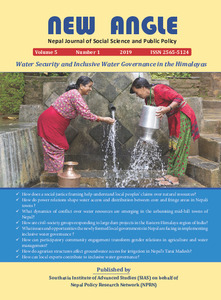Transformative engagements with gender relations in agriculture and water governance
Abstract
Despite frequent calls for transformative approaches for engaging in agrarian change and water governance, we observe little change in everyday development and research praxis. Empirical studies on transformative engagements with gender relations among smallscale or tenant farmers and water user groups are particularly rare. We explore transformative engagements through an approach based on critical pedagogy (Freire, 1996) and transformative practice (Leder, 2018). We examine opportunities to promote empathy and critical consciousness on gender norms, roles and relations in agriculture and resource management. We developed and piloted an innovative “Participatory Gender Training for Community Groups” as part of two internationally funded water security projects. The training consists of three activities and three discussions to reflect on gender roles in families, communities and agriculture, to discuss the gendered division of labour and changing gender relations over time and space, and to create empathy and resolve conflicts through a bargaining role play with switched genders. The approach was implemented in twelve villages across four districts in Nepal and India (Bihar, West Bengal). Our results show how the training methods can provide an open space to discuss local gender roles within households, agriculture and natural resource management. Discussing own gender norms promotes critical consciousness that gender norms are socially constructed and change with age, class, caste and material and structural constraints such as limited access to water and land. The activities stimulated enthusiasm and inspiration to reflect on possible change towards more equal labor division and empathy towards those with weaker bargaining power. Facilitators have the most important role in transformative engagements and need to be trained to reinterpret training principles in local contexts, and to apply facilitation skills to focus on transforming rather than reproducing gender norms. We argue that the gender training methods can initiate transformative practice with the gender-water-agriculture nexus by raising critical consciousness of farmers, community mobilisers, and project staff on possibilities of social change “in situ”.

